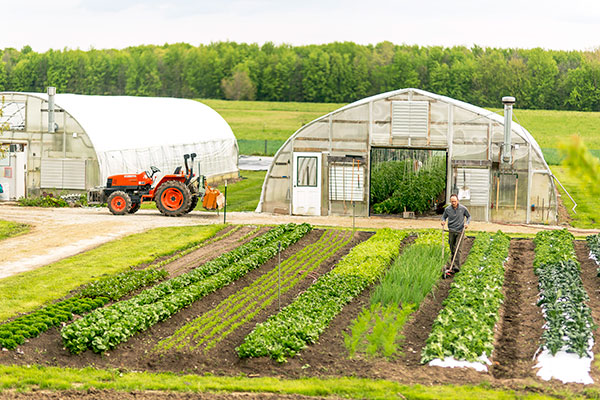Henry Dimbleby has a big task on his hands – he’s developing the government’s National Food Strategy and states that “the issue within our food system is one of distribution rather than production”.
In short, there is enough food, but vast quantities are thrown away while food banks are under increasing pressure, alongside urgent calls to reduce carbon emissions. Dimbleby wants to “align the UK’s food system with its citizens”, he says.
Could an idea first spotted by the car industry hold the key to a more resilient, efficient food strategy by eliminating all types of waste?
So-called ‘Lean process thinking’ is based on a Japanese production system, famously used by car manufacturer Toyota after the Second World War when they simply didn’t have the resources to compete with their US counterparts in terms of scale.
Instead, they focused on productivity. Dating back to the 1600s, when Japanese rice farmers worked collectively, sharing tools and harvesting together, the concept can be applied to production lines, businesses, institutions and farms.
“Lean is not opposed to growth, but a blind emphasis on growth leaves out a powerful tool, which is getting rid of waste to increase productivity, happiness, and living standards,” explains Ben Hartman who runs Clay Bottom Farm in Indiana, in the US, where he and his wife, Rachel Hershberger, grow unusual fruit and vegetables on just half an acre of land.

Hartman, author of The Lean Farm, uses lean management principles to farm ‘smarter and smaller’. “The sustainable food movement needs to take efficiency much more seriously: socially, environmentally and financially,” explains Hartman, who reduced his working hours from 60 to 35 per week as part of the transformation. “A farm is like a two-year-old,” he says, “it’s unruly and it demands attention, so we need boundaries.”
The technique isn’t always about making large-scale changes. At Clay Bottom Farm, Hartman decluttered his shed, clearing out hundreds of tools. “We live in a culture of accumulation,” says Hartman, who now simply stores essential equipment at the workstation where they get used, with photos as a visual reference so everyone knows where they are kept.
It all stems from tackling the Japanese concept of ‘muda’, or waste. “Waste is ubiquitous. Lean is about cutting out any kind of waste, whether it may be time, space or stock-related,” says Hartman. In this spirit, he aims to produce the exact amount of produce customers require and delivers all produce within four hours of harvesting to customers all based within 1.5 miles.

A Lean way of thinking draws on another Japanese culture of ‘kaizen’, which encourages a constant reduction of waste, fixing what doesn’t work and making incremental improvements. Almost like Marie Kondo – the Japanese lifestyle guru and Netflix documentary subject who advocates streamlining homes and wardrobes – but for farms.
Back in the UK’s West Dorset, Simon Fairlie runs a ‘lean’ micro dairy with just three cows, producing milk, yogurt and cheese to feed the 30 people based in the cooperative community at Monkton Wyld Court where he lives.
“I started this because there was a direct market – three quarters of the milk gets sold here so it’s more food yards than food miles, and I sell any surplus locally. There’s virtually no packaging – milk and yogurt is sold in churns 100m away from the milking parlour – and no waste as the whey from cheese-making gets fed to the pigs,” says Fairlie. “You could easily scale this up to serve a village, school or a hospital.”

Hartman also firmly believes that lean principles are scalable to a nationwide food system: “Prior to the industrial revolution, many food systems were lean. In our current US and UK food systems, the farmer is usually many steps removed from the customer. There’s a big disconnect so the wrong foods are grown, at the wrong times, in the wrong amounts. It’s wildly inefficient.
“There’s a mismatch between what customers want and what our farms are incentivised through public policy to produce, but there’s a huge opportunity here if we think creatively.”
On an international scale, the Ten Years for Agroecology project models the benefits of smart agriculture by considering how to increase yields based on efficiency.
“In the last 20 years, yields in Europe have been stagnating for wheat, barley and maize – so why would we try to increase yields even more in the same way?” asks Pierre Marie Aubert who leads the initiative at IDDRI, the Paris-based think tank that facilitates the transition to sustainable development.
“A systemic approach could create spare land crucial for climate change mitigation and increasing biodiversity by following the principles of agroecology and phasing out industrial models,” he explains.
“A strong customers-farmer link is important to cut out waste. It builds community, dramatically eliminates food miles, and puts people back in touch with nature: the ultimate source of our food and our entire well-being,” states Hartman. “Without this connection, we’d [end up] treating nature as a resource to be mined until it’s gone.”










0 Comments